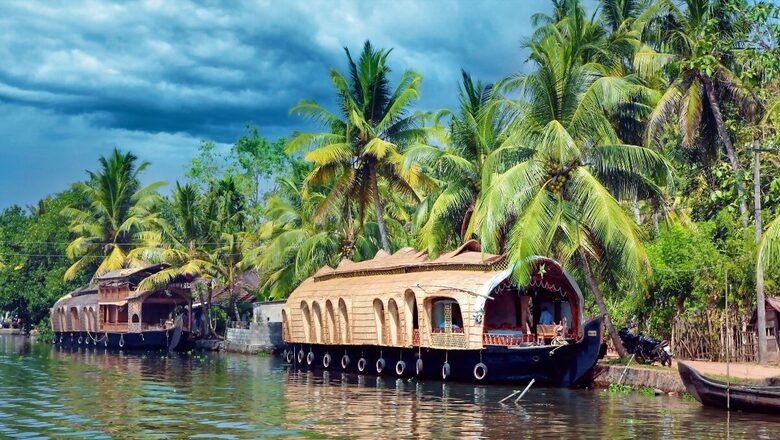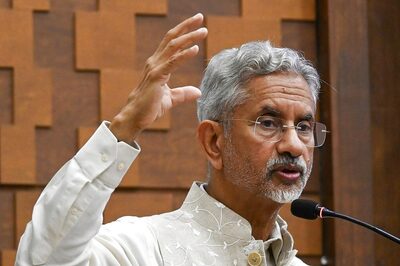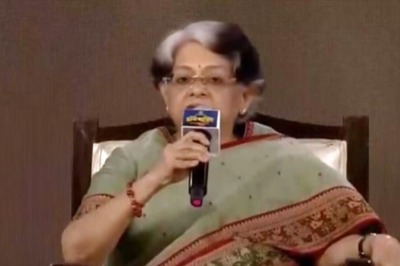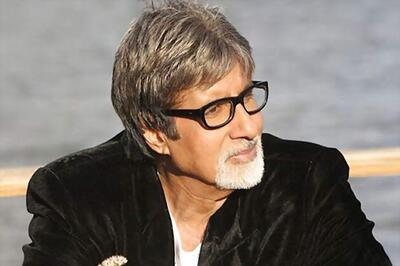
views
Every view has a counter, every opinion can be different, and at News18, we value each one of them. To present these views and opinions to you – the reader – is not just a job, but also our duty.
News18 kicks off a new series, Sticking Point, which will have prominent opinion makers from across India and the world face off on varied topics through their written words. Sticking Point will be the voice of diverse authors, as they debate on a particular subject of national and international importance, and more importantly, one that enlightens our reader.
The abrogation of Article 370 finally diluted the fear of consequences. The latest administrative changes in Kashmir, Jammu and Ladakh have given ease for travellers. Chellappa’s long-lasting desire to have a trip to Kashmir has succeeded. He travelled the breadth and length of Jammu, Kashmir and Ladakh. Nonetheless, his desire to have ownership of a small piece of land in Kashmir is in abeyance for their respective reasons.
The historic speech of Home Minister Amit Shah and the debate in Parliament still reverberate, yet, some of the Opposition parties still wish to reinstate Kashmir’s special status. A clear distinction is impossible before and after the abrogation of Article 370, people may believe the media reports are biased, but a huge surge in tourist flow is an unbiased fact in Kashmir.
Opinion: ‘Kerala As Union Territory’: Don’t Fix Something that Ain’t Broke | Sticking Point
India is said to be a great democracy, the largest democracy or miraculous democracy. It always underwent turbulence but still exists in its spirit. The reason for its existence is nothing but the strength and endurance level of a tested civilisation that emerged to face worldly challenges and it reassimilates closer to the universal existence and nature.
Since independence, the majority has not been ready to bury the palpable mistake of partition based on religious grounds. Indeed, administrative decisions are engulfed in the shadow of religious sentiments. Knowingly or unknowingly, an uproar for injustice was silently switched on for years. The debates and discussions crossed all boundaries, and then the word ‘secular’ was introduced into the preambles by the 42nd Constitutional Amendment in 1976. The critics termed the word ‘secular’ as a toss for political reasons than an administrative reason. The Supreme Court bench said, “Even during the absence of the word ‘secular’ in the preamble, we were a secular country.”
India was always secular by birth in the spirit of the Constitutional framework. We debated on the same and the West, knowingly or unknowingly, did not imbibe the word ‘secular’ into their dictionary with a definite substance than being ‘separate’ from religion or having no religious basis. Indeed, the word secular had created confusion than clarity.
Religious harmony in the country is much more important than anything else, and with all differences, we still have a developing and fast-growing economy with acceptance of all castes, creeds, and religious sentiments. It is said to be a miraculous democracy as belief systems have always flourished in this land.
While returning from Kashmir to Kerala, Chellappa realised that the Central government is heavily funding the infrastructure projects in Kashmir beyond all limits and offering great facilities to the locals, the only bare minimum demand being not to indulge in activities against the nation. Chellappa had a question: Is the current administrative decorum in Kerala giving a conducive environment for progress? Does this really contribute anything to the betterment of the people of Kerala?
Though Kerala stands high in social index trajectory, public health sector and literacy rate, that is not enough for the state to face today’s economic challenges and sustain the progress achieved on many social fronts. Middle East migration and associated economic developments helped Kerala in its initial economic growth and visionaries like EMS Naboothripad, K Karunakaran, EK Nainar, and Achutha Menon are no longer replicated. Hence, an introspection into the current political system in Kerala has become a necessity.
Indeed, critics say there are no economic activities other than the liquor and lottery business. The manufacturing and agriculture sectors are historically in a low profile. Prices of essential commodities in the state are comparatively higher with neighbouring states. Vegetables and the majority of essential commodities are being supplied by the neighbouring states. Kerala turned out to be a consumer state in all respects. The growing narcotics misuse in schools and colleges is of great concern to parents and the future of the state.
The majority of students in Kerala are migrating to other states or European countries for higher studies. The educated young mind travels outside the state for employment and returns to the state in old age, leaving successors outside the state. Kerala is moving towards a retirement hub or is already one. The shortage of funds for paying salaries and pensions for state employees is common talk around the corner. The actual statistics are much more embarrassing than we could imagine.
Keeping the note of recent Supreme Court judgement on the Central government’s constitutional rights for declaring a union territory is a helm of affairs.
Kerala is moving towards an alternative option to the current economic and political system. If Keralites benefit from such short time administrative changes, for a better infrastructure facility, lower tax, lesser commodity price, substantial cut in the vehicle registration fee, land registration fee, less diesel/petrol price, better control on home affairs, greater funding from Central government, well-planned resource allocation, efficiency in government services, more employment generation and so on, then exploring the alternative is inevitable. After all, the current destructive political influence can be eradicated and a bit more sanity in home affairs is enviable.
The Central government can make any state a union territory or vice versa, based on administrative and political reasons, cultural distinction, and strategic and defence importance. Apparently, the central agencies will have a tough task in future in maintaining the law and order of the state and the judiciary will have a more complex role providing justice to the common man.
Once Mahi was a French colony geographically within the boundaries of Kerala state; the Government of India integrated this small piece of land under Pondicherry for administrative purposes. Today, the people of Mahi enjoy all privileges more than the people of Kerala.
Strategically, China’s influence in Sri Lanka, the introduction of Vizhinjam port, and many other vital installations are of concern to the country’s security. The art and culture are in its low profile. The Adivasi, Dalit community are undergoing their toughest time in history. Western Ghats is an extensive region spanning six states and 142 talukas. Kerala has a greater share to act in the ‘Gadgil Committee report’ which suggests that the present system of governance of the environment should be changed. If we fail to protect the Western Ghats, the source of water, rare species and biodiversity will be in danger and humanity’s existence will be at stake. Keeping aside religious sentiments and political affiliation in future, Kerala must focus on the environmental front.
Interstate water resource augmentation issues are more than what we can imagine. The risk associated with Mullaperiyar Dam is burning within and if a constructive action plan is not set, a catastrophic outcome can occur anytime (manmade structures can never be permanent). The demographic and geographic situation of Kerala suggests an inclusive and thoughtful administrative mechanism than a five years switchover governance for mere functionality.
Indeed, Chellappa is well aware that Keralites are smart enough to take the merits and demerits of such administrative changes whilst the DNA of the average Keralite assimilates with a political connection and the state cannot function without a visible will of the people, hence Chellappa has no doubt that it is a challenge but a partial autonomy similar to Delhi would be an option for Kerala.
Article 1 in the Constitution states that India, that is Bharat, shall be a Union of States. The territory of India shall consist of: The territories of the states. The union territories and any territory that may be acquired. Importantly, Dr Ambedkar stated in the Assembly that the Indian Federation is not the result of an agreement by the units. Component units have no freedom to secede from it.
Kerala has, so far, not promoted dynastic politics locally except for some exemptions, and they maintain a logical decorum on political views. In recent years, major political parties misused the opportunity to serve the intellectual mind, and now the intellectual drain down remains as the biggest challenge. Categorically, political parties turned down the dynasty mode as the social media coined the tune of mass, though some political leaders wish to punch to see their successors from close blood relations.
Kerala has considerable followers of the Nehruvian dynasty, and that confidence led Rahul Gandhi to contest from the Wayanad constituency due to the idea of a nation and not the idea of a union of states. Indeed, Wayanad gave him a thumping majority in parliament. Unfortunately, the North has not taken it in the right spirit as he had been compelled to request the vote under the umbrella of coalition parties and the colour of the flag in visual media played a negative image in the North and a positive image at Wayanad.
The Election Commission requested the government to stop candidates contesting from multiple constituencies, but the court upheld the right of one candidate to contest from multiple constituencies. Chellappa does not consider the same as a fair deal because a newcomer loses the opportunity to participate in the political system and all at the taxpayers’ cost. The critics still say Rahul Gandhi should have contested the Amethi parliament constituency only, which would have given him an upper hand. Even in defeat, it would have left an opportunity for him to evolve as a warrior.
The tragedy of wooing of minority or majority became a common phenomenon in Kerala, followed by all the parties from time to time, at their convenience. The cadre parties will continue to influence the people due to feeble opposition. The freebie culture in the country is promoted by all the parties beyond its merits.
The right-wing party’s permutation and combination succeeded in Goa, Nagaland and Assam which may not suit the voters of Kerala. The media is sometimes adopting selective silence for their existence and people are well aware of the prejudiced silence. All major parties still lack the momentum to meet the people’s aspirations.
The religious polarisation is historically high, inclusiveness, secularism, federalism, and intolerance are common jargon conveniently used by politicians. Nepotism and corruption are no more secretive stock, it turns into grassroots-level phenomena and an escape is not an easy task but never impossible.
It does not mean that other states are far better than Kerala. The beautiful, highly dense state looks forward to seeing visionary leaders who can plan for a hundred years ahead the optimum utilisations of finite resources, promotion of tourism with a cultural stint, employment creation, reducing intellectual drain, world-class facilities for higher studies & research and adequate infrastructure.
The people are capable of performing, but the leaders need to create a platform and a conducive environment. The idea of state and union territories still recuperates with the idea of a nation. Kerala can be a role model of a union territory for a short period with partial autonomy but needs an illustrative debate by experts or through a referendum.
Raveendranath is the author of the book, ‘Sunshine Over Backwaters’. His Twitter @CRaviram2022. Views expressed are personal.




















Comments
0 comment